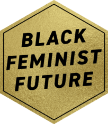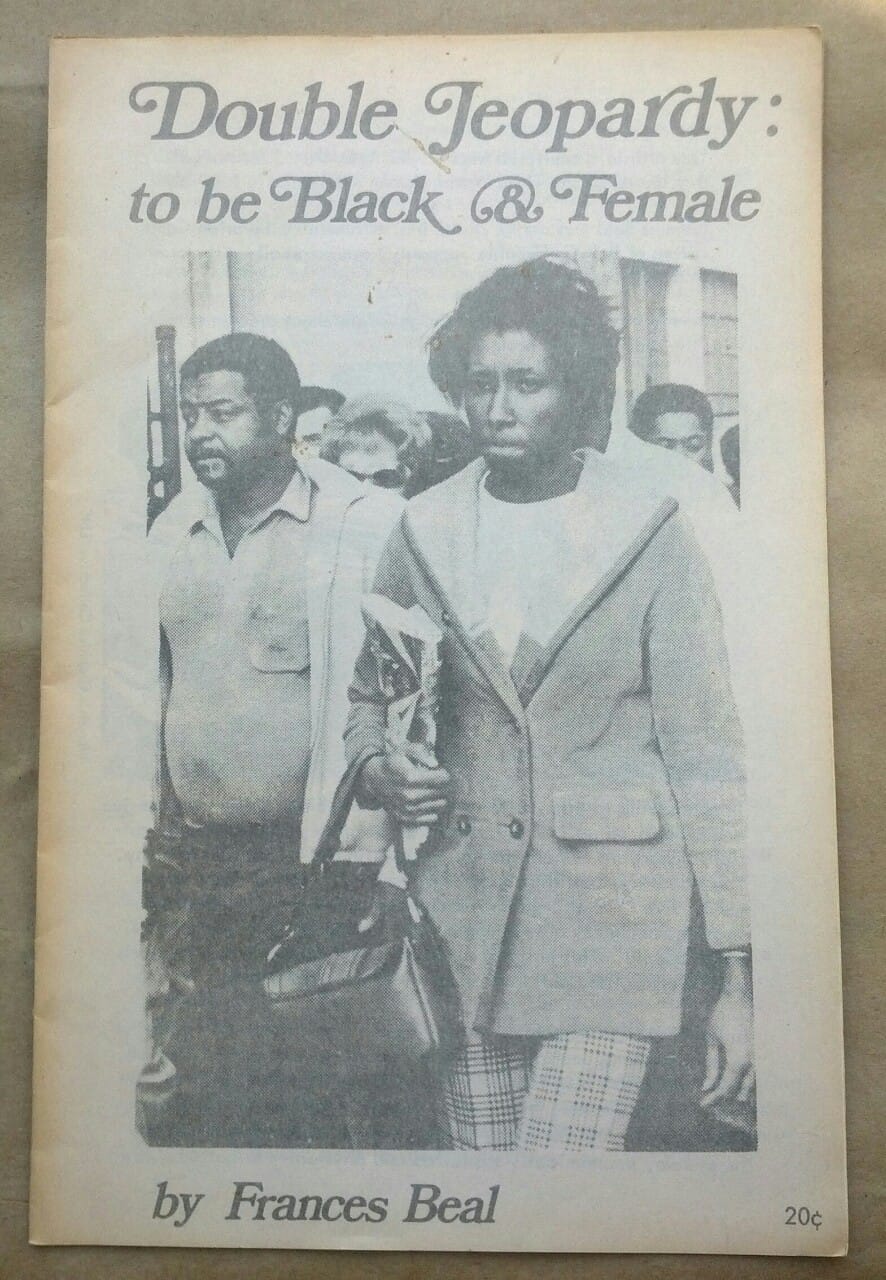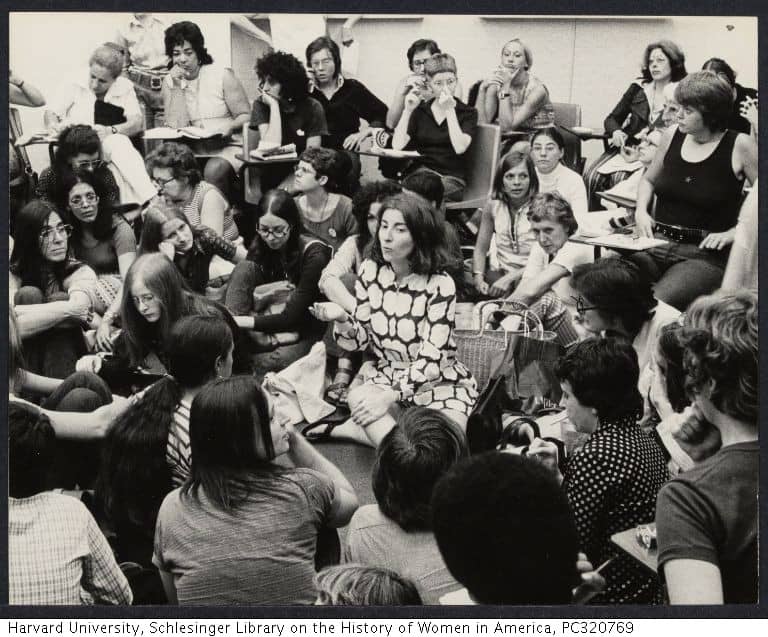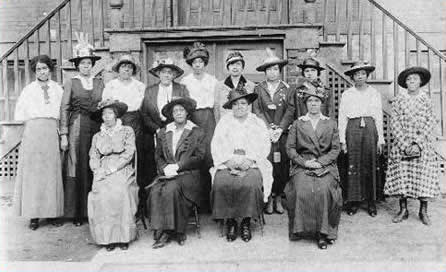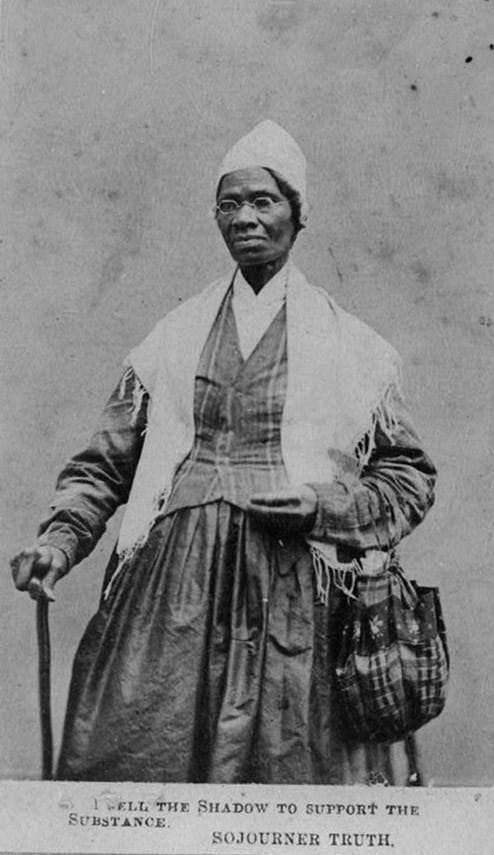Francis M. Beal wrote this pamphlet in 1969 to examine how Black women experience racism and sexism simultaneously. Beal discusses a variety of topics, including the forced sterilization (“surgical genocide”) of Black people and capitalism’s role in damaging the relationship between Black men and women. Beal calls for solidarity between the women’s liberation movement and the Black liberation movement, and states that both must be anti-capitalist and anti-imperialist.
Category: Key Term
Consciousness Raising
In the context of 1960s and 70s feminism, consciousness raising (CR) refers to the practice of discussing the consequences of sexism, racism, and classism in intimate groups of similarly identified individuals. CR was both a political strategy, as well as an opportunity for individual and collective transformation. CR sheds light on how patriarchy gaslights people into doubting their reality and equips them with tools on how to affirm their lived experiences. For many, CR meetings served as an entrypoint into feminism and activism.
Lifting as We Climb
“Lifting as we climb” was the motto of the National Association of Colored Women (NACW), which was founded in 1896 and had members including Harriet Tubman and Ida B. Wells.
“Ain’t I a Woman?” by Sojourner Truth
“Ain’t I a Woman?” was a speech delivered by Sojourner Truth in 1851 that touched on the need for intersectionality in both abolition and the women’s-rights movement. This speech was one of the first recorded mentions of intersectionality as a theoretical framework for the abolition of slavery. Author bell hooks used the same title for one of her books on Black women and feminism.
